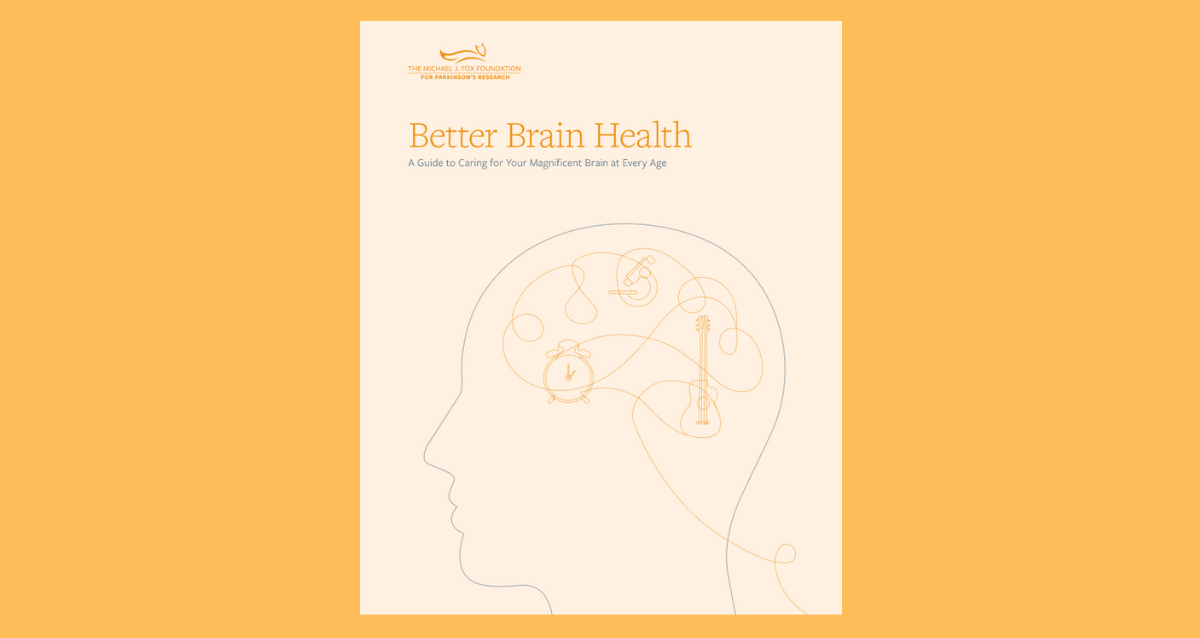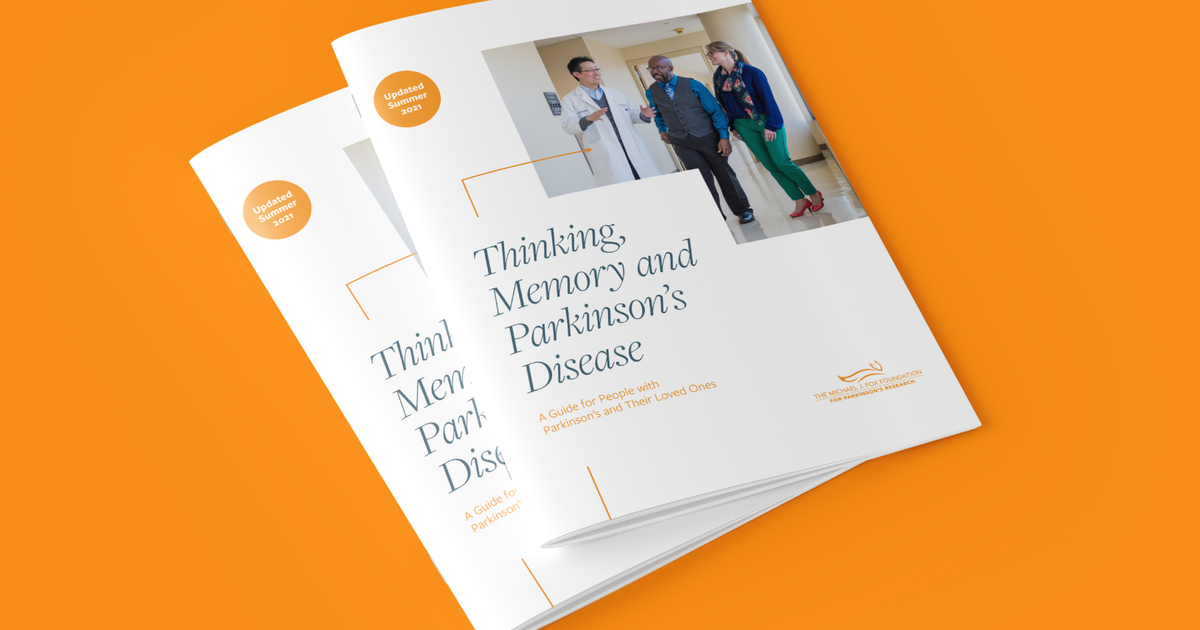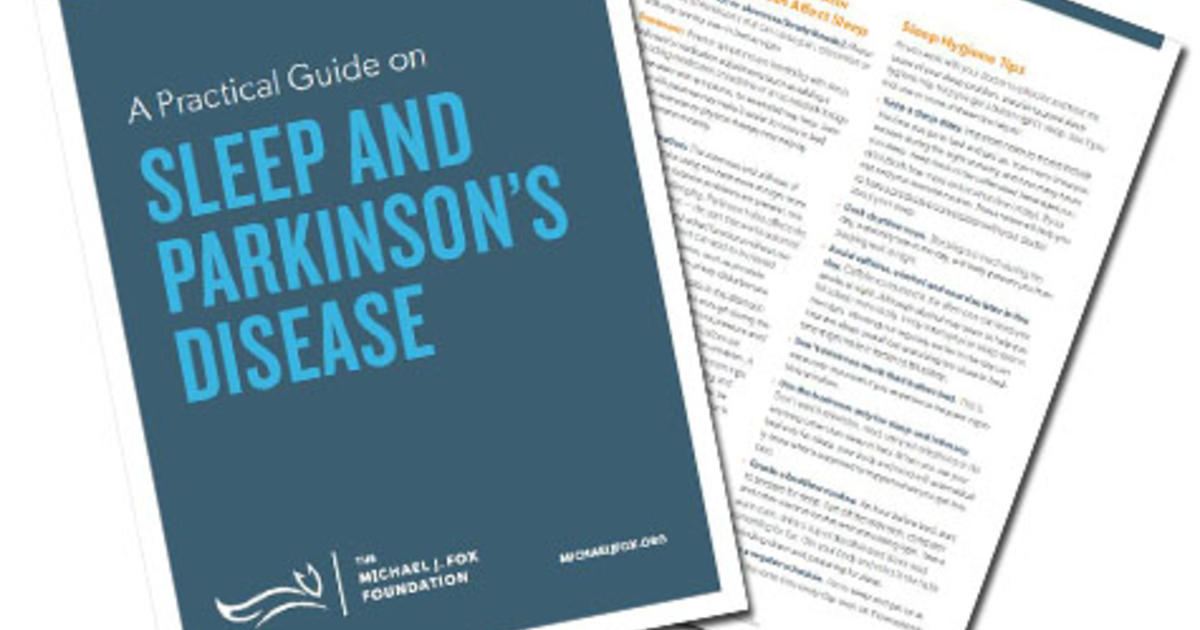Living with Parkinson's
Living with Parkinson’s does require re-adjustment as the disease slowly progresses. Depending on the level of impairment, daily activities such as getting dressed, driving and eating may become more challenging over time. Roles within the family, in the community and at work may need to be redefined.
One of the key things to remember is that most people with Parkinson’s disease continue to live long and rewarding lives.
Navigating Parkinson's
Every person diagnosed with Parkinson’s disease (PD) embarks on a unique journey. There is no standard path, and, for many, this proves to be among the most challenging aspects of the disease. Parkinson’s 360 is a set of resources developed by The Michael J. Fox Foundation for anyone whose life has been touched by Parkinson’s. It’s a candid and relatable guide for patients and families living with Parkinson’s.
Better Brain Health
Whether you live with Parkinson’s disease (PD) or care about someone who does, there is much you can do in your daily life to boost brain health. From diet and exercise to social connection, research is piecing together the puzzle of how to best care for your brain, how to prevent disease and, if disease does arise, how to best treat it.
Scientists also are learning what it means to be at risk for brain disease, like Parkinson’s. Many people aren’t aware that getting older, having a family member with PD, losing sense of smell and other factors can increase the chance — but not guarantee — you could get Parkinson’s.
Cognition - Thinking & Memory
Cognitive impairment, disturbance of memory, thinking and/or language abilities, is a non-motor symptom that can be associated with Parkinson’s.
Cognitive disturbances can arise at any time in the course of Parkinson’s disease (PD) and vary widely in severity. Some people don’t experience any problems; others have subtle changes only detectable on formal testing. Still others have issues they describe as mild or somewhat annoying, and some will go through more significant changes that interfere with the ability to perform daily activities.
Speech
Parkinson’s disease (PD) can affect speech in several ways. Many people with PD speak quietly and in one tone, so they don’t convey much emotion. Sometimes speech sounds breathy or hoarse. People with Parkinson’s might slur words, mumble or trail off at the end of a sentence. Most people talk slowly, but some speak rapidly, even stuttering or stammering.
Learn more about a specific program to help with improving speech
Exercise
Exercise is an important part of healthy living for everyone. For people with Parkinson’s research has shown that exercise is particularly important to help maintain balance, strengthen your muscles, and increase your mobility.
Here we answer some common questions such as what is the best exercise for Parkinson’s, how much exercise do I need to do, when should I exercise and much more.
Sleep
Many people with Parkinson’s disease (PD) have trouble falling asleep or
staying asleep at night. Some sleep problems are caused by Parkinson’s
symptoms, while others may be the result of the medications used to treat
those symptoms.
Did you know that bodily functions are heavily influenced by biological clocks which are distributed throughout the body in your brain and components of your cardiovascular & digestive systems.
Diet and Nutrition
There is no one diet for Parkinson’s disease (PD). But
what you eat may affect how well your medication
works and ease Parkinson’s non-movement symptoms,
such as constipation or low blood pressure. For people
with PD, doctors recommend a balanced diet, with plenty
of fruits and vegetables, which contain antioxidants.
Antioxidants clear out free radicals, substances that
are harmful to cells.
Anxiety & Depression
Depression and anxiety are common non-motor symptoms associated with Parkinson’s. They can be experienced after a diagnosis or while adjusting to changing symptoms, but they also are part of the underlying disease itself.
Depression can cause shifts in mood, energy or thinking as well as fluctuations in appetite, weight or sleep. Anxiety may lead to excessive worry or concern. Both may be managed with medication, talk therapy and/or behavioural strategies, such as regular exercise and social activities.
Employment
Being diagnosed with Parkinson’s does not mean the end of your career, in fact many people with Parkinson’s continue to work for many years post diagnosis.
Depending on your symptoms, their severity and the type of work you are in will be a determining factor.
There are a number of issues to consider and strategies you can adopt in order to maximise your ability to work safely and productively while also living with Parkinson’s. While there is no one-size-fits-all approach to sharing your diagnosis at work, some resources can help you plan for those conversations.
If you are thinking about retiring from work due to Parkinson’s it is recommended that you first seek professional advice about employment, superannuation, and insurance rights and options before making any major decisions.
Relationships
Parkinson’s disease can have an impact on relationships with a loved one and family and friends. When being diagnosed with is important to understand that you are not the only one affected by your Parkinson’s diagnosis, so it’s important to be honest and open in your communication.
The symptoms of Parkinson’s, medication and stress can pose barriers to an intimate relationship so it’s important that you are open with your partner and discuss treatment options with your specialist.
Learn More
A Survivors Guide - Professor Simon Lewis
Professor Simon Lewis from the Brain and Mind Institute in Sydney shares some practical tips of what might cause Parkinson’s and things that you can do to improve your quality of life.






